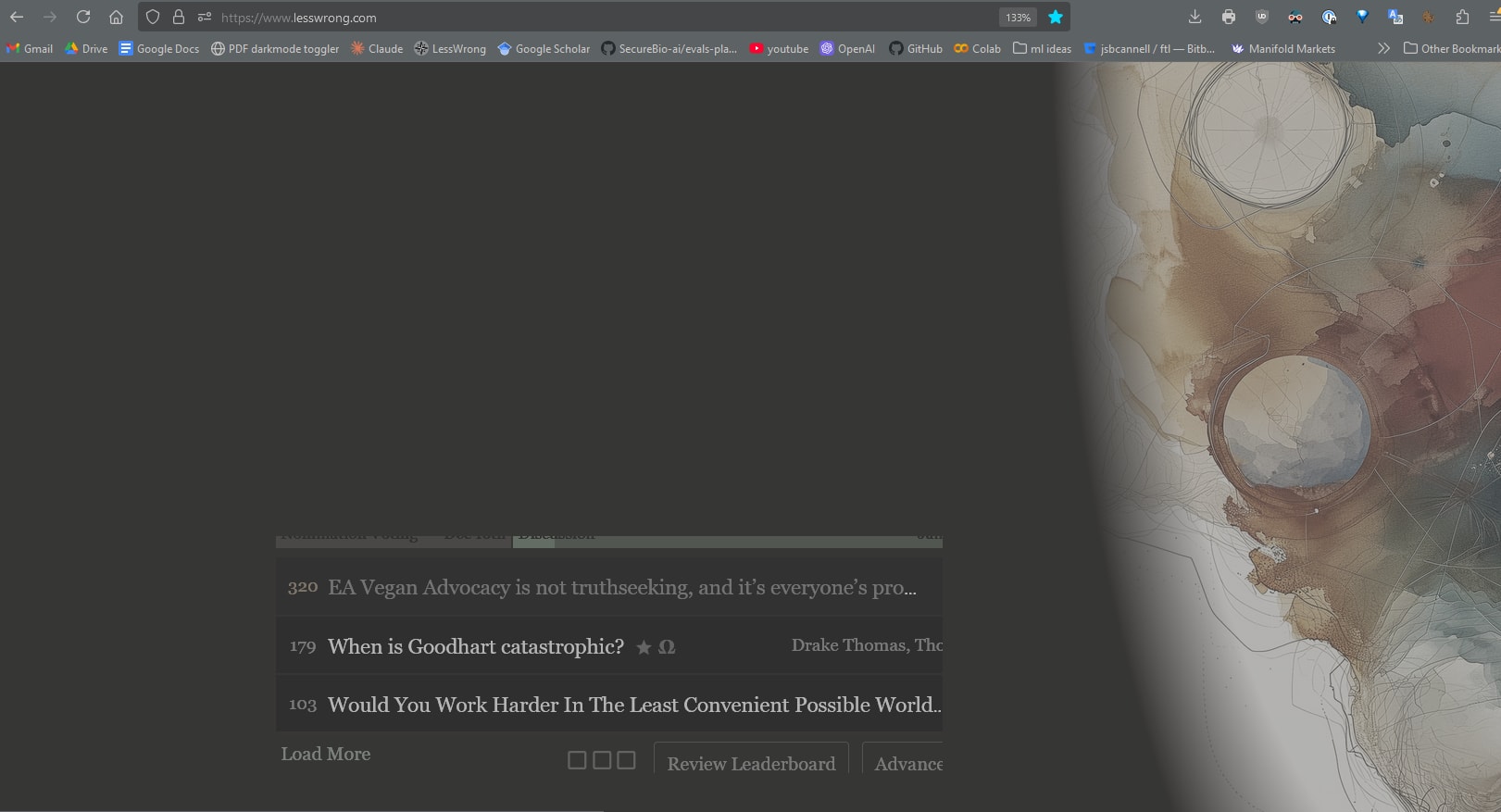If it’s worth saying, but not worth its own post, here's a place to put it.
If you are new to LessWrong, here's the place to introduce yourself. Personal stories, anecdotes, or just general comments on how you found us and what you hope to get from the site and community are invited. This is also the place to discuss feature requests and other ideas you have for the site, if you don't want to write a full top-level post.
If you're new to the community, you can start reading the Highlights from the Sequences, a collection of posts about the core ideas of LessWrong.
If you want to explore the community more, I recommend reading the Library, checking recent Curated posts, seeing if there are any meetups in your area, and checking out the Getting Started section of the LessWrong FAQ. If you want to orient to the content on the site, you can also check out the Concepts section.
The Open Thread tag is here. The Open Thread sequence is here.






Thanks, I was thinking of the latter more (human irrationality), but found your first part still interesting. I understand irrationality was studied in psychology and economics, and I was wondering on the modeling of irrationality particularly, for 1-2 players, but also for a group of agents. For example, there are arguments saying for a group of irrational agents, the group choice could be rational depending on group structure etc. On individual irrationality and continued group irrationality, I think we would need to estimate the level of (and prevalence of ) irrationality in some way that captures unconscious preferences, or incomplete information. How to best combine these? Maybe it would just be just more data driven.